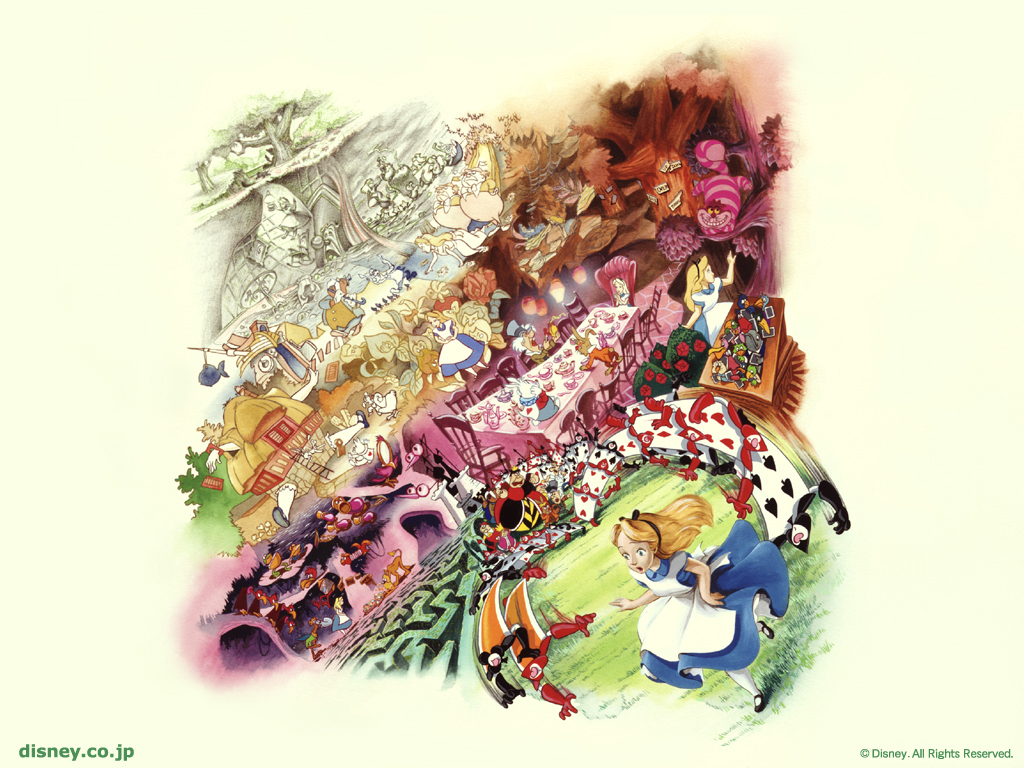Down the Rabbit Hole: Alex Bellos' Alex in Numberland
I hereby request that you read the following excerpt from Alex Bellos’ Alex’s Adventures in Wonderland. However, I recognize that your choice to do so (or not to) is entirely up to you. You have one-hundred percent control. Either way, here it is:
“The human brain finds it incredibly difficult, if not impossible, to fake randomness. And when we are presented with randomness, we often interpret it as non-randomness. For example, the shuffle feature on an iPod plays songs in a random order. But when Apple launched the feature, customers complained that it favoured certain bands because often tracks from the same band were played one after another. The listeners were guilty of the gambler’s fallacy. If the iPod shuffle were truly random, then each new song choice is independent of the previous choice. As the coin-flipping experiment shows, counterintuitively long streaks are the norm. If songs are chosen randomly, it is very possible, if not entirely likely, that there will be a cluster of songs by the same artist. Apple CEO Steve Jobs was totally serious when he said, in response to the outcry: ‘We’re making [the shuffle] less random to make it feel more random.’ Why is the gambler’s fallacy such strong human urge? It’s all about control. We like to feel in control of our environments. If events occur randomly, we feel we have no control over them. Conversely, if we do have control over events, they are not random. This is why we prefer to see patterns when there are none. We are trying to salvage a feeling of control. The human need to be in control is a deep-rooted survival instinct. In the 1970’s a fascinating (if brutal) experiment examined how important a sense of control was for elderly patients in a nursing home. Some patients were allowed to choose how their rooms were arranged and allowed to choose a plant to look after. The others were told how their rooms would be and had a plant chosen and tended for them. The result after 18 months was striking. The patients who had control over their rooms had a 15 percent death rate, but for those who had no control the rate was 30 percent. Feeling in control can keep us alive.”

Alex in Numberland possibly even more mad than Alice in Wonderland?
Bellos is a British writer and broadcaster who studied mathematics and philosophy as an undergraduate (so his sweeping conclusions might be a little dramatized with pretty flourishes for emphasis, but seem worth mulling over for a couple minutes on a long summer day).
Bellos grazes over several points in these two short paragraphs: Our ability to find patterns where there are none, our comfort with patterns, our constant grasp at control through patterns, and the emotional support that control gives. Many neuroscientists would argue that any control we enjoy is all a mirage; every decision and thought is predetermined despite the turmoil we feel when making a decision. But if that is the case, why does picking the khaki shorts over the denim or “one vente, skinny, extra hot, double shot frappawappacino with whip, please” feel so right? If our decisions have all been made for us – and we are just speaking for the desires of our neurotransmitters -why would the illusion of control give us such comfort? Why would it double the survival rate of elderly patients? If my brain has carefully calculated all of my decisions from now until forever, why did we develop so that control feels so good?
In any case, a gold star to Steve Jobs for making the shuffle option less shuffle-y. Gambler’s fallacy, shmambler’s fallacy – I know my iPod was starting to show a clear preference for Queen.
July 29, 2010
I would argue that it’s not control that comforts as much as rationalization. Seeing patterns (regardless of whether they exist) brings comfort because it allows us to predict the future. This in turn allows us to be in control. But wouldn’t you agree that predicting the patterns of the weather – and learning to be in control of it – is different from being in control of your room arrangement and plant? Perhaps the results from the nursing home experiment can also be explained by the differences in overall activity of the subjects (maybe the act of taking care of the plants etc was the causal factor in that group’s longevity?).
Also, I wouldn’t say that most neuroscientists subscribe to the determinism that every decision is an illusion. Some philosophers might, though…
And it seems that our love of choices and options is (at least partially) a cultural phenomenon:
http://www.ted.com/talks/sheena_iyengar_on_the_art_of_choosing.html
July 29, 2010
Greg makes a good point. However, it seems to me that the need to be in control is more fundamental than the need to rationalize, in terms of human behavior.
What is the reason that rationalization comforts us? Why would the ability to recognize patterns improve our sense of well-being, if not because it satisfies the need to feel in control, or at least attuned to the goings-on of the world? The drive to accumulate and organize information about the universe into something which “makes sense” is one of survival. Rationalization, then, is a mechanism which serves this drive.
I think a really interesting question that this excerpt brings up is “What does it take for a human to see something as ‘random’?”. Do we lose track of seemingly organized “repetition” after a certain number of events? Does each type of event have to occur a certain number of times, dispersed throughout the others?
January 23, 2012
Excellent website. Plenty of useful information here. I’m sending it to several pals ans additionally sharing in delicious. And naturally, thanks on your sweat!